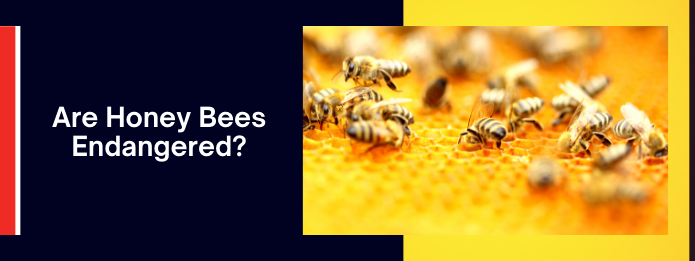
Although many people are afraid of bees and don’t want them anywhere near their property, they do play an essential role in our ecosystem. It is vital to learn how to live with wasps and bees safely so that humans and bee colonies can coexist. At Truly Nolen, we understand that discovering a bee nest or swarm generally creates a real sense of urgency. This is when our bee and wasp removal team can help.
Our technicians generally start by identifying which type of bee or wasp is on your property. This can be extremely helpful when doing removal. Different kinds of insects live in Canada, and some can be more dangerous than others.
With the autumn season approaching, wasps will quickly start to run out of food and with their colonies almost fully developed, they will start to become increasingly aggressive. On the other hand, the honey bee, which is commonly encountered, is more relaxed on cooler days.
Honey Bee Facts
Honey bees are a class of creatures referred to as “pollinators.” They earn this title because they help to spread pollen which is essential for many crops. Approximately 75% of agricultural crops rely on pollination from an outside source, such as honey bees.
Contrary to popular belief, honey bees do not build an external structure that contains their hive. Instead, they tend to live in hollow spaces such as empty logs, fallen trees, or in traditional man-made beehives.
Are Honey Bees Endangered?
Technically, honey bees are not on the endangered species list, but their populations have dropped, causing concern. Scientists believe this population decline could be due to various reasons, including habitat destruction, climate change, disease, and more.
The populations of many bee species have been decreasing on a global level. Scientists are working to address this problem and its intense ramifications.
In California, there has been such a decrease in bee population that they have to bring in millions of bees from other states to help pollinate their almond trees. Simply put, without the bees, the trees will not produce the nuts.
Do Honey Bees Sting?
Most people are concerned about bees and wasps because of their stinging abilities, especially if they are allergic to bee stings. However, honey bees are not aggressive at all and will only sting to protect their colony. This means as long as they are left alone, honey bees will not sting. However, they can become a nuisance in the spring around bird feeders and swimming pools as they forage for water. During summer and fall, they tend to become less of a problem.
Control of honey bee nests can be challenging, which is why we always recommend using pest control in Mississauga. With Truly Nolen, our expert technicians will advise you of all actions taken to eradicate the infestation and what you can expect immediately following treatment in 24 to 48 hours.
During a thorough inspection, an experienced technician will speak with you about our observations. We also take your family and pets’ safety seriously and will advise you where to remain when the process is underway. Keep your family safe and contact Truly Nolen today for the removal of bees or wasps today!
